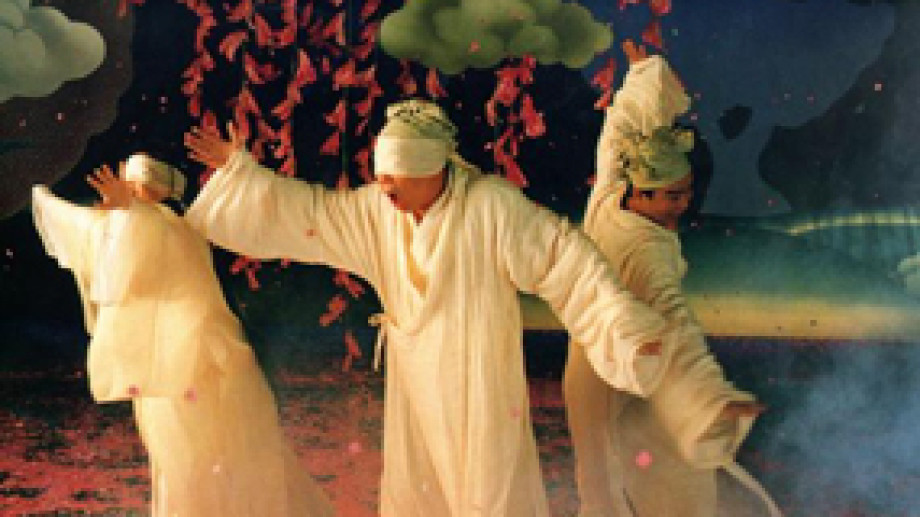
From May 6 to 19, the Film Society of Lincoln Center presents Taiwan Stories: Classic and Contemporary Film from Taiwan, a survey of the ever-surprising Taiwanese Cinema, at the Walter Reade Theater. On Saturday, May 7 at 4pm there will be a conference on “Filmmaking in Taiwan: Yesterday, Today, Tomorrow” in the Walter Reade Theater. Admission to the conference is complimentary. Tickets are only available at the Walter Reade Theater's box office, on a first-come, first-served basis. The series, co-sponsored by the Government Information Office of Taiwan, is held as part of a year’s worth of events to be held around the world celebrating the 100th anniversary of the republic of China.
Filmmaking in Taiwan began in the silent era, as the Japanese (rulers of Taiwan from 1895-1945) often used the island as a kind of exotic locale. After the move to the island of the Nationalist Government under Chiang Kai-Shek (Jiang Jieshi), equipment and personnel from the Nationalist-run Central Motion Picture Studio came as part of the evacuation. Many of these first Taiwanese films were rousing anthems of resistance to People’s Republic; simultaneously, a much smaller Taiwanese-dialect cinema also emerged, with the island’s audiences often strictly divided as to what films they saw based on their language (Mandarin Chinese vs. Taiwanese dialect).
By the early 1960s, a new generation of Taiwanese filmmakers began to create films that swapped patriotic themes for a closer look at daily life. Of special interest is the work of Lee Hsing (Li Xing), whose Our Neighbors and Oyster Girl represented an updating of the pre-war Shanghai cinema tradition. The Sixties saw as well the emergence of Hong Kong cinema as a major force, especially with their period operas and martial arts films; after falling out with Shaw Brothers, director Lee Han-hsiang (Li Hanxiang) moved to Taiwan and attempted to set up a rival operation. Lee’s Beauty of Beauties remains one of his finest works, while his friend King Hu’s A Touch of Zen is widely considered one of the unquestionable masterworks of Chinese cinema.
By the early Eighties, the social transformation of the island hinted at in the social realist films of the Sixties was nearly complete: Taiwan was now one of the Asian economic “tigers,” highly prosperous, modern and stable. A new generation of filmmakers, some of them educated abroad, emerged: Chang Yi (Zhang Yi), Fred Tan, Stan Lai, Tsai Ming-liang, Edward Yang (the subject of an upcoming FSLC retrospective) and of course Hou Hsiao-hsien (Hou Xiao-xien). From the mid-Eighties through the late Nineties, Taiwanese films were widely acclaimed around the world; Hou topped several surveys of the “Most Important Director of the Nineties,” including many best-of-decade lists in the Film Society’s Film Comment. Unhappily, as Taiwanese filmmakers were being celebrated internationally, their fate at home was quite the opposite. Taiwan’s wide-open film market was completely dominated by foreign, mainly American, films—so much so that Edward Yang’s Cannes prize-winner, Yi Yi, could not find distribution.
The past few years seem to have witnessed a kind of turning point. Cape No. 7, released in 2008, is far and away the most popular Taiwanese film ever, breaking box office records and encouraging local production. Young audiences especially have discovered Taiwanese cinema, and recent audience figures are impressive and growing.
So join us for the unique opportunity to (re-)discover some great Taiwanese classics, as well as the work of some of the artists who are making Taiwanese cinema once again one of the most exciting in the world.
For film descriptions, screening schedule & tickets >>
Taiwan Stories: Classic and Contemporary Film from Taiwan is co-presented by the Film Society of Lincoln Center and the Government Information Office of the Republic of China (Taiwan), with cooperation from the Chinese Taipei Film Archive and the Taipei Economic and Cultural Office in New York. Special thanks to Wen Tien-Hsiang, Chung Mong-hong, Shen Ko-shang, Benjamin C. L. Yang, Teresa Huang, Peggy Chiao, and Isabelle Wu for their support of the series. Additional thanks to Andrew Chan.
Photo: The Peach Blossom Land



